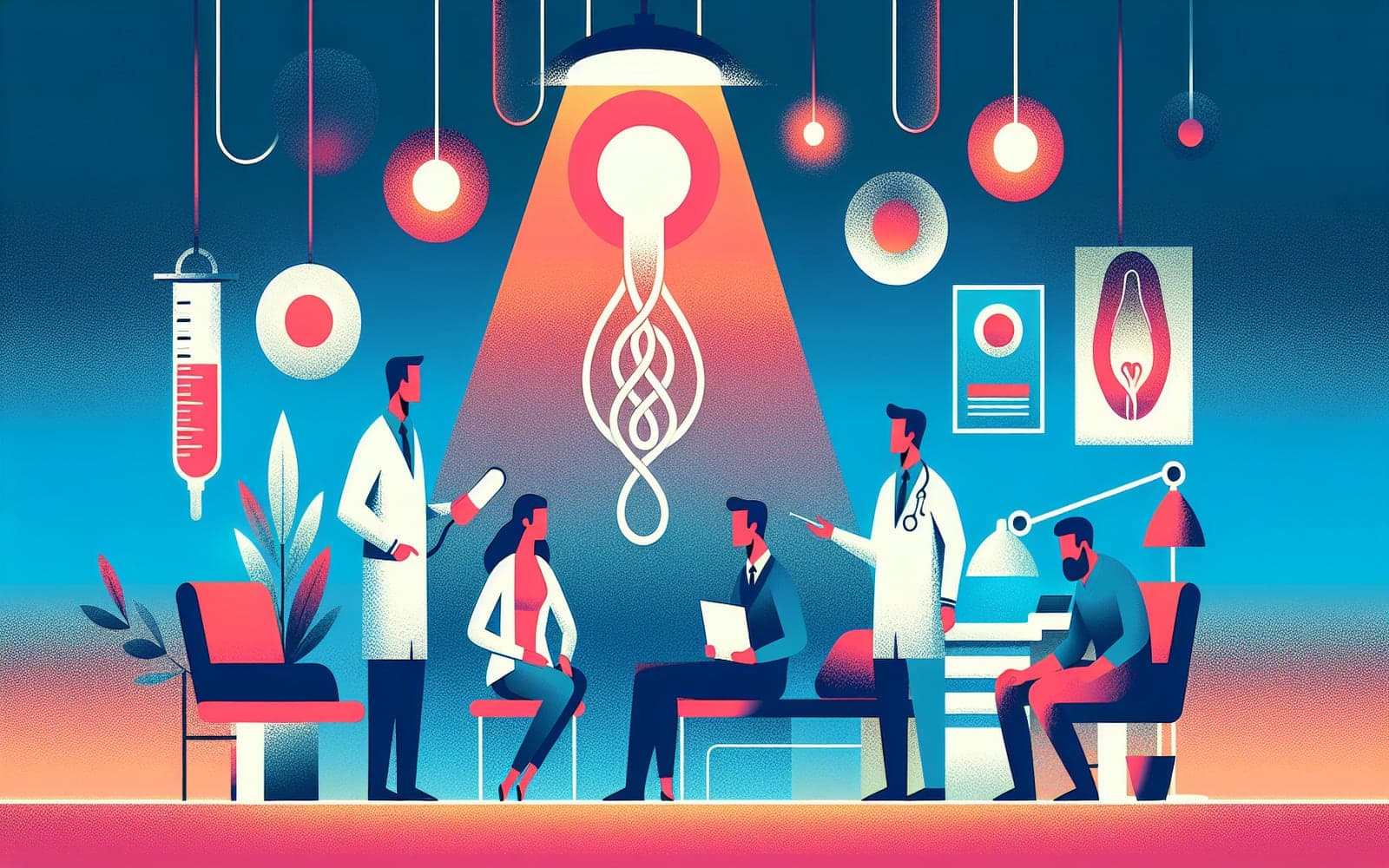Cracking the Code: How Doctors Diagnose Acute Epididymitis
Published: Oct 27, 2023
Diagnosing acute epididymitis involves a combination of clinical skills and laboratory tests. But what exactly are doctors looking for?
Contents
The Clinical Examination
The first step in diagnosing acute epididymitis is a thorough physical examination. Doctors will carefully inspect and feel the scrotum, looking for swelling, tenderness, and redness. They'll pay special attention to the back of the testicle, where the epididymis is located. They'll also check for signs of urethritis (inflammation of the urethra) or prostatitis (inflammation of the prostate gland), which can occur alongside epididymitis.
Laboratory Tests
Several lab tests help confirm the diagnosis and identify the underlying cause. A urine test can detect signs of infection and inflammation. Doctors may also perform a special urine test called nucleic acid amplification testing (NAAT) to check for sexually transmitted infections like chlamydia and gonorrhea. In some cases, they might take a swab from the urethra to look for these infections under a microscope.

Imaging Studies
While not always necessary, imaging can be helpful in some cases. Ultrasound is the most common imaging test used for epididymitis. It can show inflammation of the epididymis and rule out other conditions that cause similar symptoms, like testicular torsion. Doppler ultrasound, which shows blood flow, can be especially useful in distinguishing epididymitis from other causes of scrotal pain.
Frequently Asked Questions
Yes, it's crucial for accurate diagnosis.
Sometimes, but urine tests are more common.
Some results are immediate, others may take a few days.
It can be, which is why a thorough evaluation is important.
Key Takeaways
Understanding the diagnostic process can help you be a more informed and active participant in your healthcare.
If you're experiencing symptoms that might be epididymitis, don't hesitate to reach out to Doctronic for guidance on next steps.Related Articles
References
Workowski KA, et al. Sexually Transmitted Infections Treatment Guidelines, 2021. MMWR Recomm Rep 2021; 70:1.
Pilatz A, et al. Acute epididymitis revisited: impact of molecular diagnostics on etiology and contemporary guideline recommendations. Eur Urol 2015; 68:428.
Always discuss health information with your healthcare provider.

